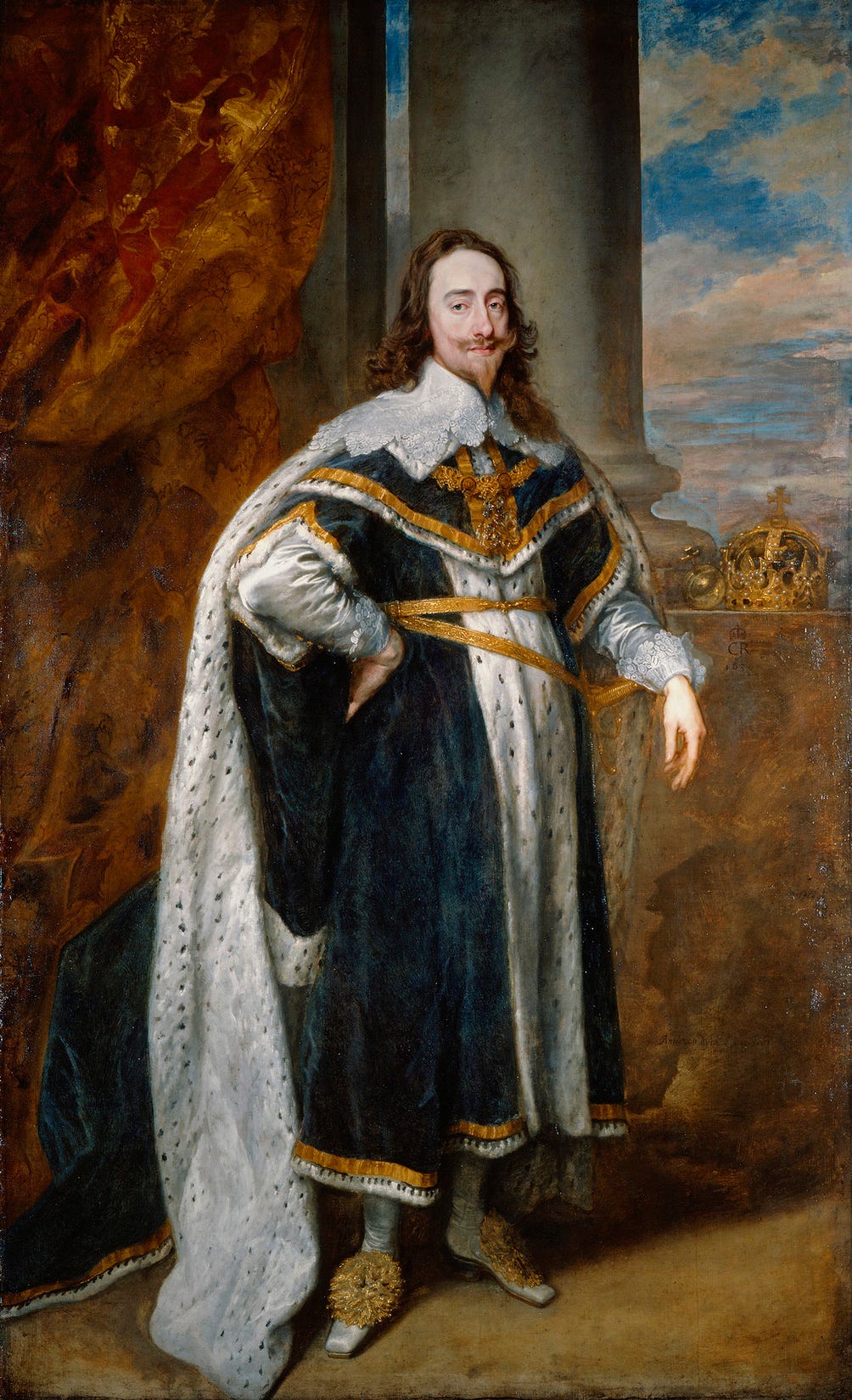When it comes to British history, we live in a rather exceptional time.
Today, the British monarchy and royal family are nothing more than philanthropic figureheads whose primary job is to arouse patriotism in the British heart. When it comes to actual government, the British prime minister and Parliament run the show.
But until relatively recently, England’s government — much like that of its rebellious offspring — was a carefully constructed balancing act between king, Parliament, and people. Although, to be fair, that description is somewhat idealistic; in reality, it frequently amounted to a violent (and sometimes fatal) tug of war for power.
Take, for instance, the reign of King Charles I.
The portraits we have of Charles reveal a man with an incredibly long face who favored a pointed beard, a long mustache, and an occasional scowl. Those features complement the accounts we have of his character. He was evidently a relatively sickly man who never had much interest in being around people. Raised in Scotland, he never quite managed to get rid of his accent — or his childhood stammer.
But for all that, Charles had every intention of ruling England with a heavy hand. The trouble with that intention became immediately obvious the moment he actually tried to do so; Parliament had no intention of letting him.
Charles was an Anglican who appreciated the pomp and ceremony of Catholicism and wished to impose these high church ceremonies on his entire domain. Charles’ House of Commons was not and neither, as Charles learned when he tried to impose Anglicanism on Scotland, were actual Scotsmen (although the Scottish bishops approved the change).
His differences with the Scotsmen led to a war that Charles lost before he could even arrive in Scotland. His differences with the House of Commons meant that when he called Parliament into session to obtain funding for the war in Scotland, the House of Commons wasn’t interested in giving it to him.
Instead, Parliament wanted to hold the king to account for the last 11 years of rule (during which Charles had avoided calling it into session), and so Charles disbanded it on May 5, 1640, after less than a month of proceedings.
Just months later, Charles was forced to call Parliament back into session, and this time, it had no intention of allowing Charles to disband it. The result was a session that didn’t come to an end until 1660 — 20 years later — and saw the execution of Charles, the establishment of a temporary republic, civil war, and the return of Charles’ son (also named Charles).
The game of checks and balances and government isn’t always as banal as court rulings and assertions of the rights of governing bodies. Every once in a while, it’s becomes a rather bloody affair.



